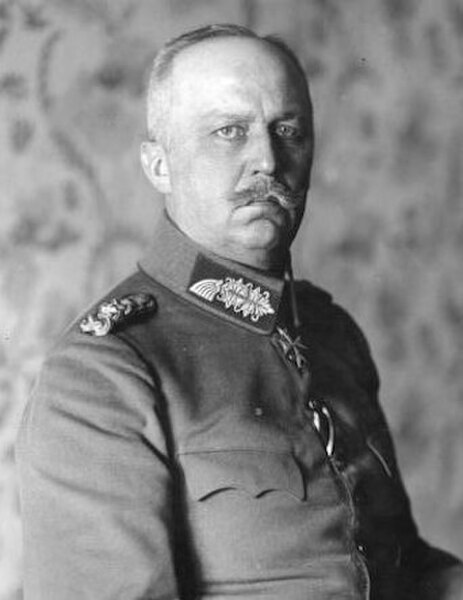The stab-in-the-back myth was an antisemitic conspiracy theory that was widely believed and promulgated in Germany after 1918. It maintained that the Imperial German Army did not lose World War I on the battlefield, but was instead betrayed by certain citizens on the home front – especially Jews, revolutionary socialists who fomented strikes and labour unrest, and republican politicians who had overthrown the House of Hohenzollern in the German Revolution of 1918–1919. Advocates of the myth denounced the German government leaders who had signed the Armistice of 11 November 1918 as the "November criminals".
An illustration from a 1919 Austrian postcard showing a caricatured Jew stabbing a German Army soldier in the back with a dagger. The capitulation of the Central Powers was blamed on socialists, Bolsheviks, and the Weimar Republic, but in particular on Jews.
Hagen takes aim at Siegfried's back with a spear in an 1847 painting by Julius Schnorr von Carolsfeld of a scene from the epic poem Nibelungenlied ("Song of the Nibelungs") – which was the basis for Richard Wagner's opera Götterdämmerung.
First Quartermaster General Erich Ludendorff
Field Marshal Paul von Hindenburg
History of Germany during World War I
During World War I, the German Empire was one of the Central Powers. It began participation in the conflict after the declaration of war against Serbia by its ally, Austria-Hungary. German forces fought the Allies on both the eastern and western fronts, although German territory itself remained relatively safe from widespread invasion for most of the war, except for a brief period in 1914 when East Prussia was invaded. A tight blockade imposed by the Royal Navy caused severe food shortages in the cities, especially in the winter of 1916–17, known as the Turnip Winter. At the end of the war, Germany's defeat and widespread popular discontent triggered the German Revolution of 1918–1919 which overthrew the monarchy and established the Weimar Republic.
World War I mobilization, 1 August 1914
Bethmann Hollweg in uniform. He never served in the army, but after the war started, he was appointed to an honorary rank with a general's uniform.
Mobilization order is read out in Berlin, 1 August 1914
German soldiers on the way to the front in 1914. A message on the freight car spells out "Trip to Paris"; early in the war, all sides expected the conflict to be a short one.








